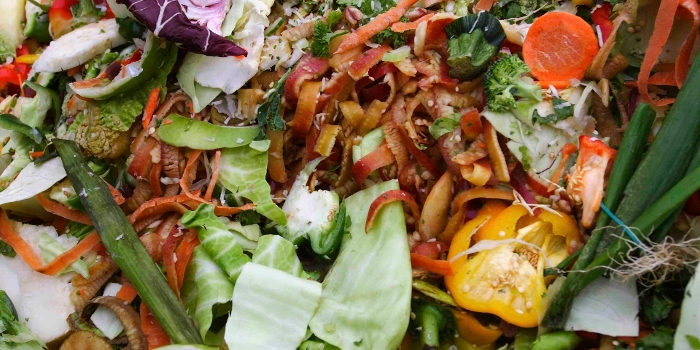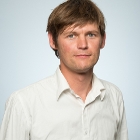The Value of Organic Waste (Re-StORe)
Re-StORE enables estimating the value of decentralized processing of organic (residual) waste
ProjectThe waste policy for organic waste in Amsterdam is less developed than the policy for glass, paper and plastic. Organic waste is little collected and is often contaminated. A missed opportunity, because decentralized processing of organic (residual) waste can contribute to meeting circular objectives. Re-StORe is developing a measuring system and simulation model that gives companies and municipalities more insight into the financial, ecological and social effects of various composting and biodigestion forms, on a small and large scale. This need to support parties to make an informed choice.

Measuring Method and Simulation Model
There are all kinds of ways to process organic waste decentrally. Composting installations or worm trays, for example, but companies and municipalities are reluctant to implement them. Reasons for this are the additional costs and the uncertainty of the impact.
Re-StORe examines how a measurement method and simulation model for companies and municipalities could look like. Which indicators are important and how can they be measured? The goal is to develop a functional measuring system and simulation model. This enables companies and municipalities to estimate the value of initiatives relating to organic waste flows:
1. The measuring system analyzes existing systems.
2. The simulation model calculates future scenarios.
The tools make a cost-benefit analysis and make an estimate of the environmental and social benefits that can be achieved.
Follow-Up Project Re-Organise
This project is a follow-up to the two-year research project Re-Organise, in which research was done on the decentralized processing of organic waste flows at urban farms. Re-Organise was completed in early 2018. In Re-StORe the knowledge from Re-Organise is broadened in a number of areas (Re-StORe views the entire chain), or made more specific (Re-StORe focuses on bio-fermentation and composting).
Based on Data
The data for the Re-StORe measuring system is collected on the basis of literature and through collaboration with other knowledge institutes, such as AMS and TU Delft. In addition, four cases are being investigated: Java Eiland, Buurtcompost, Compostering in Hengelo and Biogasboot de Ceuvel. The data is used by the AUAS to develop the measuring system. During the development, the partners test the user-friendliness of the system and the meaning of the results.
The simulation model is developed on the basis of a case around Havenstad, an area in development in Amsterdam north and northwest. The information for the simulation model is collected through interviews and workshops with stakeholders. Stakeholders are, for example, the municipality, project developer and early residents. Based on this input, the AUAS is programming the simulation model.
The Social Component of Circular Waste
The research group Psychology for a Sustainable City analyzes the social component of collection, processing and use of organic waste. With literature research and interviews, the lectorate looks at:
• Which parties and joint ventures in the waste chain are decisive.
• What effect does alternative methods of waste processing such as decentral bio-digestion and composting have on social cohesion and participation.
• What social impact does it have as residents collect and process their waste themselves, instead of having it done by the municipal garbage service.
• How to measure your impact so that you can compare it with other initiatives.
Make Better Choices
At the end of this project the measuring system and the simulation model will be delivered. The system must enable municipalities and businesses to make better choices on issues like “is this the impact that we want to realize and focus on with this solution” or “which solution for the processing of organic waste fits best in a specific situation”.
Contact
For more information, contact Maarten Mulder, project manager Re-StORe.

ir. M. Mulder
Go to detailpage- Inge Oskam – AUAS, Professor Circular Design and Entrepreneurship
- Maarten Mulder – AUAS, Project Leader
- Kasper Lange – AUAS, Senior Researcher/ PhD Circular Design and Entrepreneurship
- Yannick Schrik - AUAS, researcher
- Simon de Rijke - AUAS, researcher Logistics
- Erik Essen - AUAS, researcher Society and Law
- Rob Schaacke - AUAS, researcher Amsterdam SensorLab
Collaboration
Re-StORe is a collaboration between the research programme Urban Technology at the University of Applied Sciences Amsterdam, Amsterdam Institute for Advanced Metropolitan Studies (AMS), Avalex, Branche Vereniging Organische Reststoffen, BuurtCompost, De Ceuvel, Eco-cycle, Enki Energy, City of Amsterdam, GroenCollect, Meerlanden, Metabolic, NDSM Energie, The Waste Transformers and TUDelft. The project is co-financed by Regieorgaan SIA, part of the Dutch Organisation for Scientific Research (NWO).

